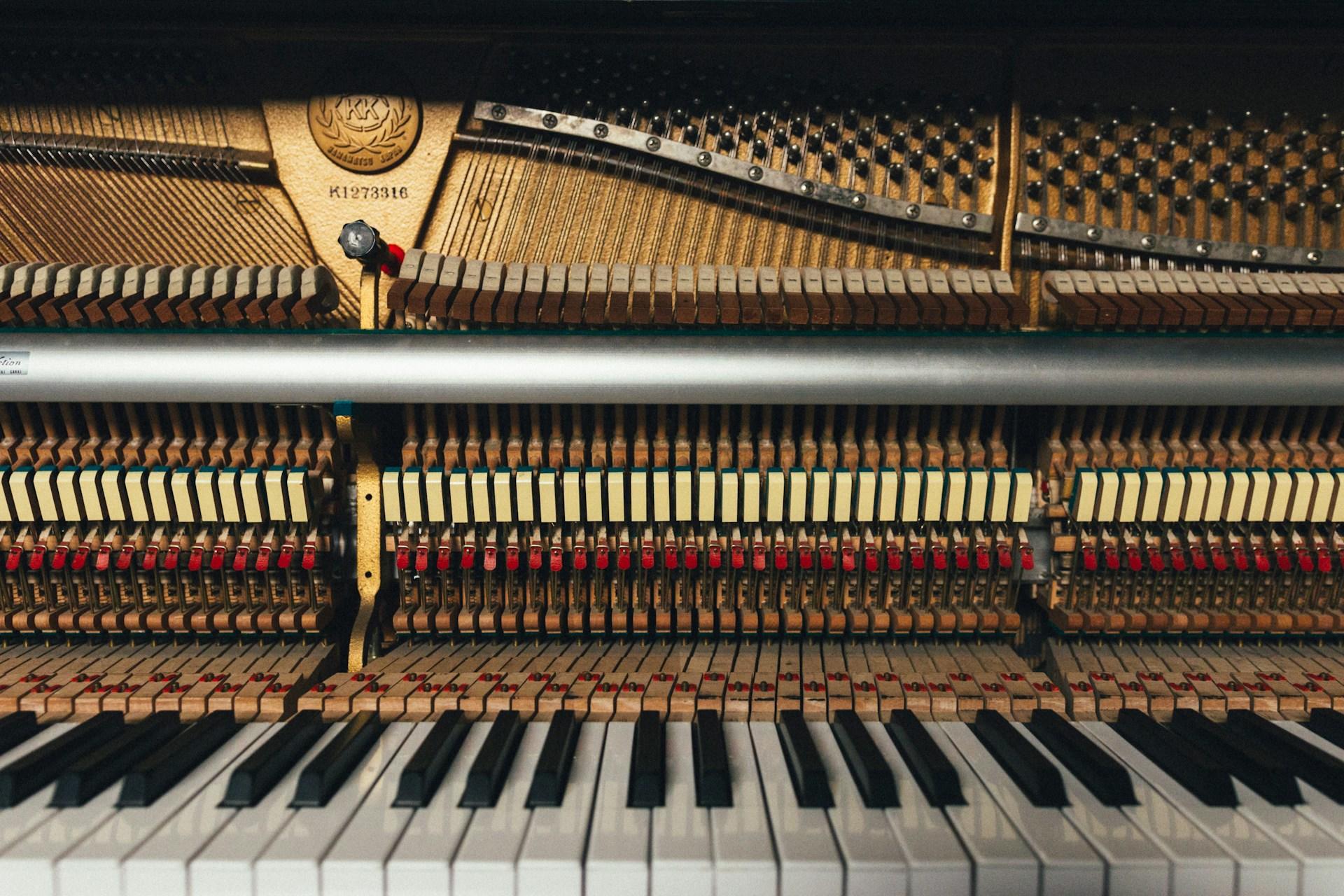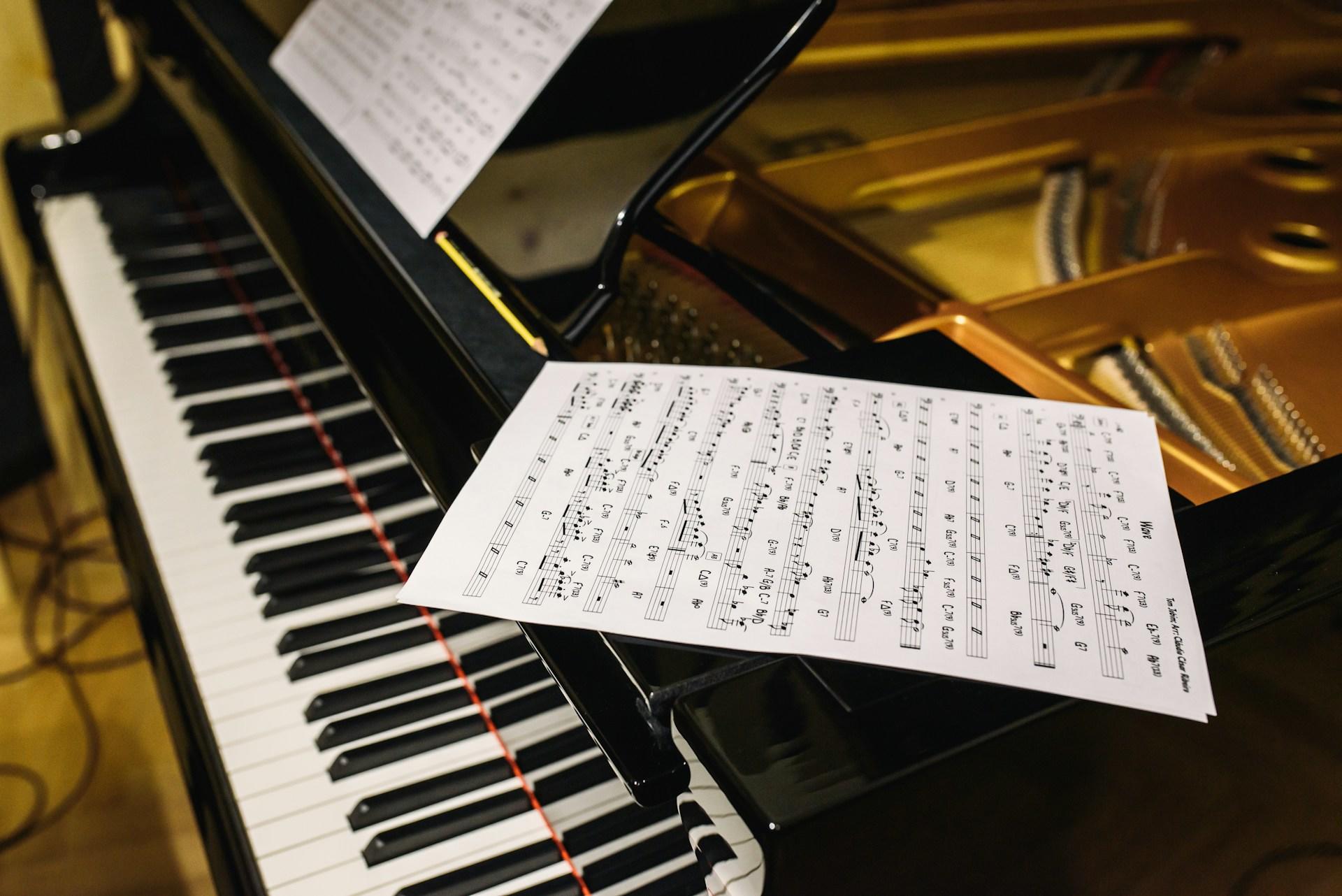The piano, a beautiful musical instrument, offers a world of joy and creativity. Learning songs for it can be a delightful journey, especially when you find the right pieces that match your level. To help you on this musical adventure, we've compiled a list of beginner-friendly songs by renowned composers and artists. These songs, while diverse in style and complexity, are all within your reach, promising a rewarding learning experience.
We've organized the songs by artist or composer, making it easy for you to find the music that resonates with you. Rest assured, these songs are not just for the pros. They are designed to be accessible, allowing you to enjoy the process of learning and playing from the very beginning.

Johann Sebastian Bach
These pieces by Johann Sebastian Bach are recommended for beginner pianists because of their simple melodies and compositional structure, which makes them easier for beginners to learn.
They provide good opportunities for novice pianists to work on finger independence and dexterity, mainly through counterpoint and polyphony.
- Prelude in C Major
- Minuet in G Major (often attributed to Petzold)
- Minuet in G Minor (often attributed to Petzold)
- Minuet in D Minor BWV Anh. 132
- Little Preludes and Fughettas
Ludwig van Beethoven
Ludwig van Beethoven composed some incredible music, but he also created some wonderfully accessible pieces for novice pianists:
- Ode to Joy
Ode to Joy has a simple melody that helps pianists develop hand coordination.
- Für Elise
Für Elise is another simple and memorable melody that can help you work on your finger dexterity. It's also great for working on arpeggios, dynamics, and expression.
- Moonlight Sonata (I)
The first movement of the Moonlight Sonata is easy for beginner pianists to play and allows them to work on pedaling and chord playing.
Those learning on a piano rather than a keyboard will also be able to use this piece to practice emotional playing.
It's certainly not a piece for intermediate pianists, who should be looking to more challenging pieces. Fortunately, Beethoven composed quite a few of those, too!

Friedrich Burgmüller
Friedrich Burgmüller was a German pianist and composer. Beginners will enjoy his most famous work, the 25 Progressive Pieces or “25 Études faciles et progressives, Op. 100”.
Each piece offers a different technical challenge. As the name suggests, these pieces, while initially easy to play, will become progressively more difficult.
They introduce pianists to scales and arpeggios, articulation, and hand coordination, which is excellent for learning independence and synchronization.
A pianist who can comfortably play all of these will likely be reaching an intermediate level. Advanced pianists should find every one of these quite easy to play.
Frédéric Chopin
These two examples of piano works by Frédéric Chopin are recommended for any beginner pianist.
While these aren't things you should play on your first day of playing piano, anyone with a novice level in piano should be able to work on them.
- Waltz in A Minor B. 150
This beautiful piece, with an expressive melody and simple harmonies, is accessible to beginners and provides pianists with great opportunities to showcase their expressive playing and interpretation.
- Preludes, Nocturnes, and Waltzes
Chopin's preludes, nocturnes, and waltzes offer a range of options for pianists of different levels. However, some examples from them are more accessible and can be played by a beginner.
Prelude in E Minor, Op. 28 No. 4, for example, has a simple and expressive melody with harmonies that a beginner should be able to play.
Nocturne in E-flat Major, Op. 9 No. 2, is probably one of Chopin's most recognizable pieces and accessible to beginner pianists.
Waltz in B Minor, Op. 69 No.2 allows novice pianists to focus on the waltz rhythm.

Claude Debussy
The French composer Claude Debussy is most famous for this piece, which provides a great learning opportunity for beginners.
The third movement of his Suite Bergamasque, known as Clair de Lune, is one of the most famous piano pieces of all time and also incredibly accessible for beginners.
Wolfgang Amadeus Mozart
Whether you're about to start playing the keyboard or piano or have spent years studying classical music, Wolfgang Amadeus Mozart is a composer whose pieces you'll regularly learn.
Mozart will come in handy at every level of playing the piano. However, here are just some pieces that beginners could learn.
- Twinkle Twinkle Little Star Variations
- Sonata No. 16 (Sonata Facile)
- Piano Pieces from the "Nannerl Music Book"

As with most of Mozart's pieces, even if you've never studied classical music, you'll likely recognize many of them, especially "Twinkle, Twinkle, Little Star Variations."
Did you know that "Twinkle, Twinkle, Little Star is actually an English nursery rhyme, and the melody is from an 18th-century French children's song?
That's why they're called the "Twinkle, Twinkle, Little Star variations" or "Twelve Variations on "Ah vous dirai-je, Maman."
For certain pianists, regardless of their level, there are some songs that every pianist should know.
Johann Pachelbel
Nothing makes a piano song easier to learn than being recognizable. While most people are probably familiar with string quartets playing Pachelbel's "Canon in D" at weddings, a basic piano version is great for learning chords, hand placement, and playing a melody at the same time.
This piece is great on the piano, guitar, or any other musical instrument that can be played easily. It isn't too fast and is played at a moderate tempo. It offers simple harmonies and a repetitive structure that makes it easier to memorize.
Erik Satie
Erik Satie was a French composer and pianist who famously attended the Paris Conservatoire, leaving without a diploma.
His composition Gymnopédie No. 1 has a simple melody, slow tempo, and basic harmonies and is excellent for helping pianists get used to pedaling.
Despite the relative simplicity of the piece, which isn't very technically demanding, it allows piano students to work on their emotional expression, legato playing, and even basic sight-reading, something Satie was said to be very bad at!
Pyotr Ilyich Tchaikovsky
The Russian Romantic composer Tchaikovsky has plenty of pieces suitable for beginners. For example, these pieces from the Children's Album are particularly accessible.
- Morning Prayer
- Old French Song
- The Sick Doll
- The Dolly's Funeral
These melodic and memorable pieces can help beginners and inexperienced pianists memorize them more easily while learning to play them.
In addition to providing opportunities to play melodies, pianists can use these pieces to practice hand independence.
One hand usually plays a melody while the other offers accompaniment or counterpoint. This is great for getting used to the initially tricky task of using your hands independently of one another.
Remember your feet, though. These pieces from Tchaikovsky are also great for pedaling.

Develop Your Piano Repertoire with the Help of a Private Tutor
If you want to improve your piano playing and add new pieces to your repertoire, working with a private tutor is one of the best ways to improve.
Your private tutor can evaluate your level and pick pieces ideally suited to you and your playing. This will allow you to challenge yourself without attempting to tackle too tricky pieces, which can be a waste of time if you spend weeks trying to play a piece that's too difficult for your current level. Conversely, they won't waste your time with pieces that are too easy for you, either, ensuring that you focus on pieces that highlight the right aspects of your playing.
Don't worry if you can't find any local tutors, though. Thanks to the internet, you can learn musical instruments online with tutors, too! The advantage of online tutoring is that it allows you to broaden your search to tutors worldwide. For instance, if you are in Atlanta, you can consider piano lessons atlanta.
Many of the tutors on the Superprof website offer the first lesson for free, allowing you to try out a few tutors before choosing the one that's right for you, your level, and even the style of music you'd like to play on the piano. Similarly, those in Las Vegas might want to explore piano lessons las vegas.
If you'd like to learn with a private tutor, search for them on the Superprof website. You can search by skill (piano in this case) and location and find local private piano tutors. Each tutor's profile details what they teach, how much they charge, and what their other students say about them. We recommend shortlisting potential suitable tutors before you start contacting them though. Don't waste your time contacting tutors who you're sure won't be right for you as this wastes both yours and their time. Once you have a shortlist, start getting in touch with as many tutors as you like.
Don't worry if you can't find any local tutors, though. Thanks to the internet, you can learn musical instruments online with tutors, too! The advantage of online tutoring is that it allows you to broaden your search to tutors worldwide.
Many of the tutors on the Superprof website offer the first lesson for free, allowing you to try out a few tutors before choosing the one that's right for you, your level, and even the style of music you'd like to play on the piano.
Start your search for your ideal piano tutor and begin taking piano classes on Superprof today!
Summarize with AI:
















